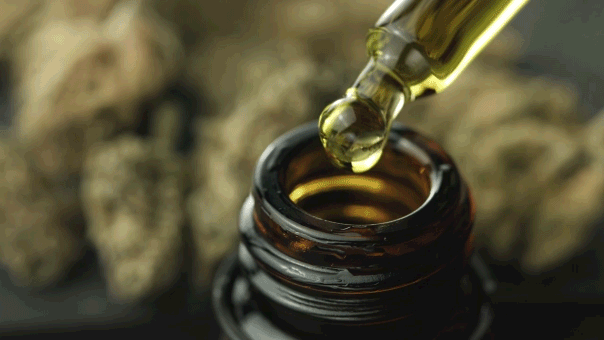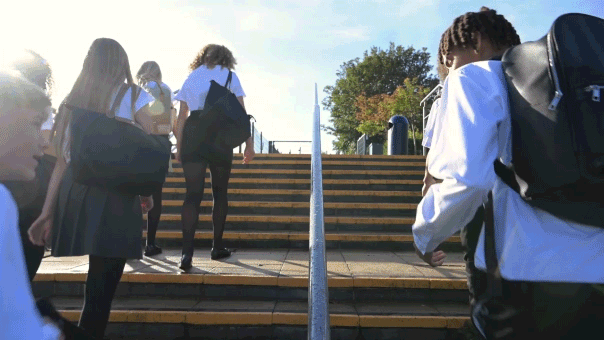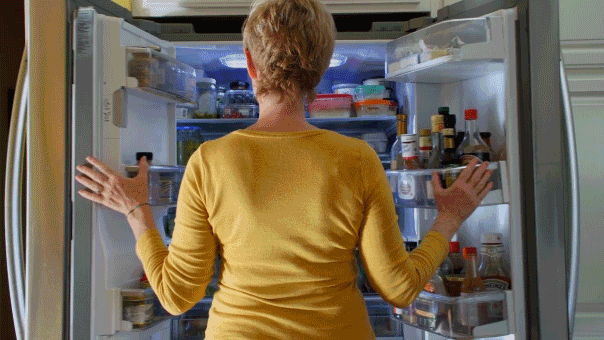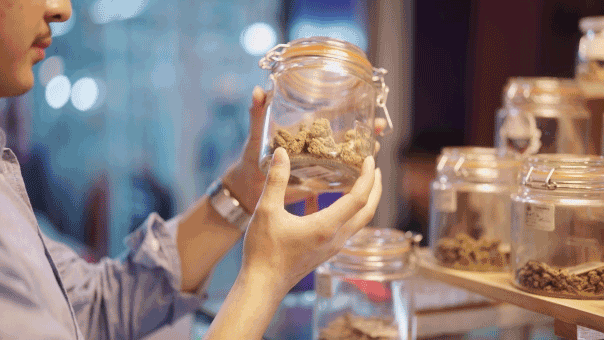India's health care system crumbling under massive COVID-19 outbreak
India is seeing 350,000 coronavirus cases and thousands of deaths per day; Trey Yingst reports on the crisis.
The U.S. announced on Wednesday that it was sending $100 million in coronavirus supplies to India in an effort to provide "urgent relief" as the country grapples with a devastating wave of new infections. In a statement, officials said U.S. government assistance flights would begin arriving in India on Thursday, and continue into next week.
Among supplies being flown to India are oxygen materials, personal protective equipment, vaccine manufacturing supplies, rapid testing kits and therapeutics. The U.S. also pledged public health assistance and said CDC experts will "work hand-in-hand with India’s experts in the following areas: laboratory, surveillance and epidemiology, bioinformatics for genomic sequencing and modeling, infection prevention and control, vaccine rollout, and risk communication."
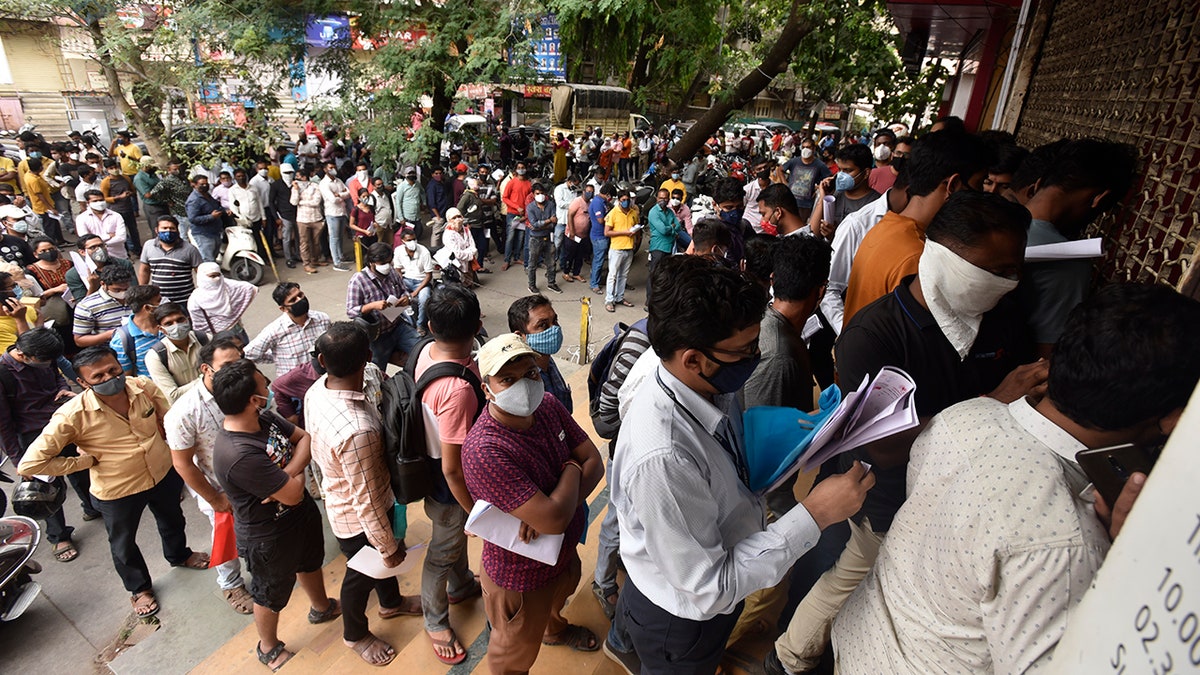
April 8, 2021: People wait in queues outside the office of the Chemists Association to demand necessary supply of the anti-viral drug Remdesivir, in Pune, India. (AP Photo, File)
The announcement comes as reports emerge that desperate citizens are increasingly turning to the black market to purchase drugs in an effort to save sick relatives. Ashish Poddar told the Associated Press he paid a dealer $1,000 in advance for remdesivir and tocilizumab after the hospital told him supply had run out and the therapies were what would keep his father alive. The dealer, however, never came, and his father died.
INDIA'S CORONAVIRUS DEATH TOLL TOPS 200K AMID 'PARTICULARLY DANGEROUS' WAVE
"I wish he had at least told me that he isn’t going to come," Poddar told the Associated Press. "I could have searched elsewhere."
India’s case count has skyrocketed in recent weeks with officials warning that the hundreds of thousands of new daily cases added are likely an undercount of the situation due to scant testing resources. The country recently surpassed 204,000 COVID-19 deaths, just months after the prime minister had declared victory against the virus.
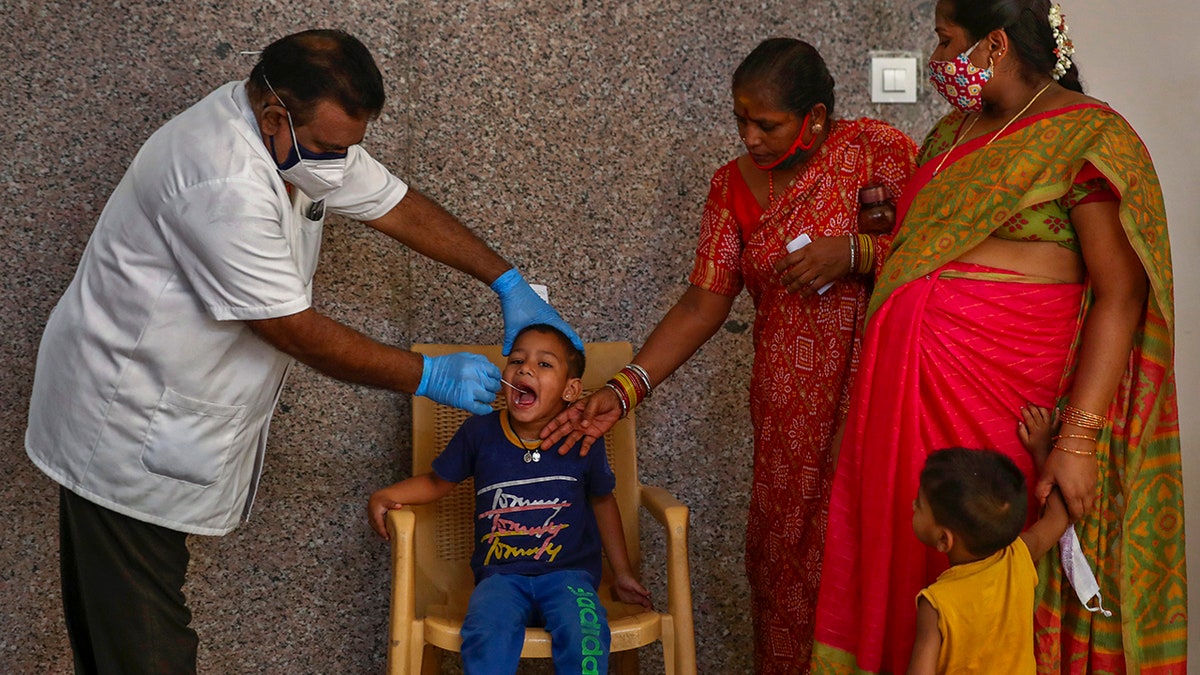
April 29, 2021: A health worker takes a mouth swab sample of a boy to test for COVID-19 in Hyderabad, India. (AP Photo/Mahesh Kumar A.)
The crisis, which is believed to be fueled by more transmissible variants, demonstrates what could happen when the virus is not controlled, White House officials warned last week. In Africa, officials are watching with bated breath and preparing for a potential resurgence of its own. Experts have criticized India for abandoning preparation measures when the case rate was stable, and hosting mass religious gatherings with no masks and allowing for political rallies with no public health measures in place.
SOS MESSAGES, PANIC AS CORONAVIRUS BREAKS INDIA'S HEALTH CARE SYSTEM
"We need to regroup urgently," John Nkengasong, director of Africa Centers for Disease Control and Prevention, told the Associated Press. "We do not have enough health care workers. We do not have enough oxygen."
The crisis in India has further implications for the world, as it was expected to produce a large number of AstraZeneca vaccines needed for COVAX, but has since banned exports. In the coming months, the country is expected to use any vaccine it manages to produce for its own population before resuming shipments elsewhere.
The U.S. has pledged to send several million doses of unused AstraZeneca vaccine to the country of 1.3 billion. India just moved to open vaccine eligibility to everyone over age 18 in an effort to stifle the spread. However, it could be weeks before the country sees the impact of its efforts.
CLICK HERE FOR COMPLETE CORONAVIRUS COVERAGE
Only about 9% of the country’s population has received one dose since the vaccine campaign began in January, Reuters reported.
The Associated Press and Reuters contributed to this report.

